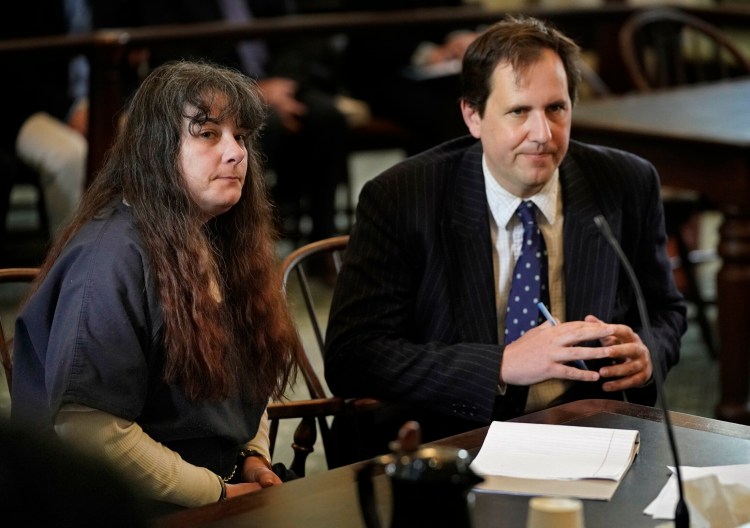Shawna Gatto, the Wiscasset woman convicted in April of murdering 4-year-old Kendall Chick, has filed a notice of appeal with the Maine Supreme Judicial Court.
Gatto is appealing both the verdict by Superior Court Justice William Stokes and the 50-year prison sentence that was handed down in June.
Gatto, 44, had been held at Two Bridges Regional Jail in Wiscasset while her trial was pending, but is now housed at the Maine Correctional Center in Windham.
Chick died in December 2017 while in the care of her paternal grandfather, Stephen Hood, and Gatto, his fiance. The girl had been removed from her mother’s care because of substantiated neglect.
After Gatto was sentenced in June, the Department of Health and Human Services released information about Chick’s interaction with DHHS. That information showed that caseworkers failed to follow protocol in monitoring her placement with Hood and Gatto, including visiting the home only twice in a span of about eight months, even though monthly visits are required.
The state closed Chick’s child protection case 10 months before her death, but neither Hood nor Gatto petitioned to adopt the girl.

Kendall Chick died of multiple injuries.
Chick’s death, followed three months later by the death of 10-year-old Marissa Kennedy of Stockton Springs, spurred calls for reforms to Maine’s child protective, which had been beset by high staff turnover and ineffective leadership. DHHS has since hired dozens more caseworkers and has made additional reforms designed to ease the burden on caseworkers.
Chick died from blunt force trauma to the abdomen that investigators linked to Gatto. But the girl had signs of prior abuse as well.
Gatto was charged and convicted of depraved indifference murder, which is defined as “conduct that manifests a depraved indifference to the value of human life and that in fact causes the death of another human being.”
Gatto’s appeal was expected. Her attorney, Jeremy Pratt, had indicated in June that they would appeal and most people convicted of murder appeal. Pratt declined to comment on the appeal Tuesday.
Both he and state prosecutors will file written briefs, to be followed later by oral arguments before the Supreme Judicial Court, which will then issue a written decision at a later date.
Comments are not available on this story.
Send questions/comments to the editors.



